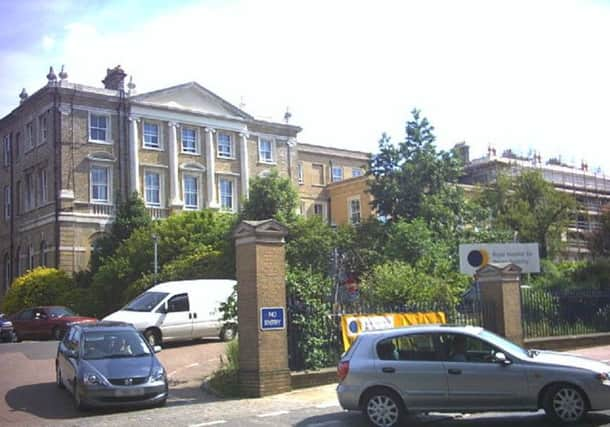Brain-damaged Scots teen set for pioneering clinic


Lauren Millman, 18, from Arbroath, will attend the Royal Hospital for Neuro-disability in Putney, London, where she could remain for up to a year.
The teenager was left with catastrophic brain damage after she attempted to commit suicide last year and is now looked after full time by her parents as well as a team of district nursing staff and carers.
Advertisement
Hide AdAdvertisement
Hide AdLauren has been making subtle responses in recent months and was referred to the hospital by the NHS for sensory modality assessment and rehabilitation technique (Smart) treatment.
The London hospital specialises in the rehabilitation of brain-injured patients and the Smart assessment explores all five senses.
Patients are asked to track objects with their eyes, to try to press switches and to look at photographs and given things to taste and smell.
Lauren’s mum, Gillian said: “It is a minimum six weeks for the Smart assessment, but hopefully they will see something to work on.
“Lauren will be down there for some rehabilitation for anything up to a year.
“I have mixed feelings because it’s going to be hard not being down with her and seeing her every day, but I know it is the best place for her.
“I am hoping to visit at least once a fortnight though.”
CONNECT WITH THE SCOTSMAN
• Subscribe to our daily newsletter (requires registration) and get the latest news, sport and business headlines delivered to your inbox every morning
Lauren attempted suicide in September last year and parents Gillian and Rob were told she would not make it past Christmas.
Advertisement
Hide AdAdvertisement
Hide AdThey were able to bring her home for what they were told would be end-of-life care, but they have seen some changes in her this year.
She had been making subtle responses, such as moving her head towards new sounds, and signs of getting upset about things - Gillian used lemon and glycerine swabs to freshen her mouth up and Lauren screwed her face up and shook her head because of the sourness.
The RHN opened the first dedicated brain injury unit in the UK in 1985 and has since been at the forefront of developing clinical assessment techniques for this complex patient group (such as Smart).
For families and medical staff it is often very difficult to assess whether a patient is vegetative or has some residual awareness and ability to communicate.
Smart has been continually refined since it was conceived in 1988 and is designed to identify potential awareness in adults who have sustained profound brain damage and have been diagnosed as being in a vegetative state.
Lauren, who was studying at Angus College, found it difficult to discuss her problems.
The failed suicide attempt caused catastrophic damage to her brain, which left her in a vegetative state.
Her parents have been looking after her with the help of district nursing staff and a team of carers from Angus Council’s social work department.
Advertisement
Hide AdAdvertisement
Hide AdIn Scotland, two people take their own lives every day and suicide is the biggest killer of young people, but the associated stigma can make it difficult to talk to others.
SCOTSMAN TABLET AND IPHONE APPS